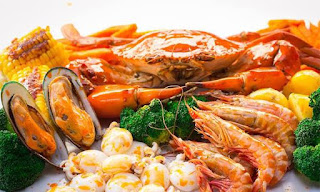How is a kidney-friendly diet different?
When your kidneys are not working as well as they should, waste and fluid build up in your body. Over time, the waste and extra fluid can cause heart, bone and other health problems. A kidney-friendly meal plan limits how much of certain minerals and fluid you eat and drink. This can help keep the waste and fluid from building up and causing problems.
How strict your meal plan should be depends on your stage of kidney disease. In the early stages of kidney disease, you may have little or no limits on what you eat and drink. As your kidney disease gets worse, your doctor may recommend that you limit:
Potassium
Potassium is a mineral found in almost all foods. Your body needs some potassium to make your muscles work, but too much potassium can be dangerous. When your kidneys are not working well, your potassium level may be too high or too low. Having too much or too little potassium can cause muscle cramps, irregular heartbeat and muscle weakness.
Many people with kidney disease will need to limit potassium. Ask your doctor or dietitian if you need to limit potassium.
Fluids
You need water to live, but when you have kidney disease, you may not need as much. This is because damaged kidneys do not get rid of extra fluid as well as they should. Too much fluid in your body can be dangerous. It can cause high blood pressure, swelling and heart failure. Extra fluid can also build up around your lungs and make it hard to breathe.
Depending on your stage of kidney disease and your treatment, your doctor may tell you to limit fluid. If your doctor tells you this, you will need to cut back on how much you drink. You may also need to cut back on some foods that contain a lot of water. Soups or foods that melt, like ice, ice cream and gelatin, have a lot of water. Many fruits and vegetables are high in water, too.
Vitamins
A kidney-friendly meal plan may make it hard to get all of the vitamins and minerals you need. To help you get the right balance of vitamins and minerals, your dietitian may suggest a special supplement made for people with kidney disease.
Regular multi-vitamins may not be healthy for you if you have kidney disease. They may have too much of some vitamins and not enough of others. Talk to your doctor or dietitian to find vitamins that are right for you.
Tell your doctor and dietitian about any vitamins, supplements or over-the-counter medicines you are taking. Some may be harmless, but others can damage your kidneys more or cause other health problems.




评论
发表评论